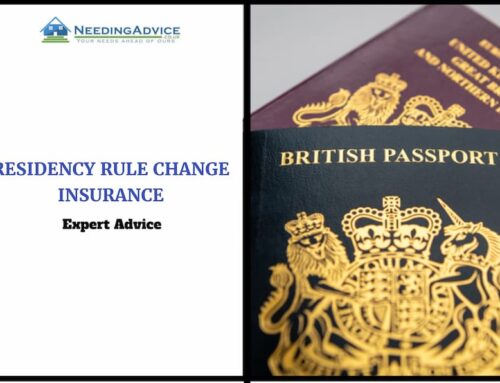Relevant Life Policy
Relevant life policy is a type of life insurance that is designed to provide a tax-efficient way for employers to offer life insurance as a benefit to their employees.
This type of policy is typically taken out by the employer on behalf of the employee, and it provides a lump sum payment to the employee’s loved ones in the event of their death.
Read on for a comprehensive guide on relevant life policy and how it may benefit you.
What Is Relevant Life Policy?
Relevant Life Policy enables employers to provide a death-in-service benefit for employees. This life insurance policy offers tax benefits and provides a tax-free lump sum payout upon death or terminal illness diagnosis.
The cash sum will be paid out only to individuals who are currently employed and have agreed to participate in the plan. The employer will assume ownership of the policy and make premium payments in a manner consistent with regular insurance policies.
In case of an employee becoming terminally ill with a life expectancy of 12 months or less, and having a plan in place, they will also receive a payout. Terminal illness cover is included as a standard feature in most life insurance plans.
The policy will be placed in a life plan trust that provides tax-efficient benefits for both the employee and employer.
Companies often provide perks such as life insurance to their employees when they are not able to afford high premium costs of other policies.
The Relevant Life Plan should be structured as a single life policy with the employee as the person covered. The employer should pay the policy premiums during the employee’s time of employment. The policy should be written in trust from the beginning, utilizing the Relevant Life Plan Discretionary Trust to ensure benefits for the person covered and their family and financial dependantsAny individuals who depend on the borrower for financial sup.... The plan should terminate by the time the employee reaches the age of 75.
Key Benefits:
- Tax efficiency benefits both businesses and employees
- Offers death-in-service benefits to employees on an individual basis who are not covered by a registered group life scheme
- Policyholders and their families receive ongoing practical advice and emotional support for business protection
- Terminal Illness Cover and Accidental Death Cover are included at no additional cost
Who Would Be Eligible For a Relevant Life Policy?
Relevant life insurance offers a tax-efficient option for providing life cover to company directors and employees of small businesses that do not have a group death in service scheme. Relevant life insurance may be beneficial for individuals with higher incomes seeking additional coverage beyond their workplace death benefits or those with significant pension savings.
Relevant life cover provides tax benefits for both employers and employees. The company covers the premiums, which are typically considered an allowable business expense by HMRC and therefore exempt from corporation tax.
The premiums are not considered a benefit in kind for the employee. Premiums and any lump sum benefits paid are eligible for income tax and National Insurance contribution relief.
Relevant life cover is typically purchased for company directors, although any employee of a sole trader, partnership, limited liability partnership, limited company, or charity is eligible. These are individual life insurance policies that cover one person.
How Old Do You Have To Be To Be Entitled To Relevant Life Policy?
Life cover is typically available to individuals aged between 16 and 73. The maximum age for the policy term is 74.
How Much Will It Cost?
Insurance premiums are calculated by assessing the risk of a claim being made. Insurers consider various policy and personal factors that impact both the business and individual circumstances of employees to determine the price.
Factors that may influence the cost of your relevant life insurance:
The Amount of Cover:
Relevant life insurance provides a payout to the employee’s family based on a multiple of their salary. Using salaries as a starting point for calculating the necessary amount of relevant life cover may overlook other sources of income.
Life insurance can provide a payout of up to fifteen times your total remuneration, which can be beneficial for company directors with various sources of income such as salary, dividends, and bonuses.
How Long the Cover Needs to Last:
Relevant life insurance coverage is typically only in effect for the duration of an employee’s tenureThe type of ownership or occupation of a property, such as f... with the employer, unless the policy is transferred to them upon departure. Coverage is often provided until retirement age, with the option to choose up to 75 years.
Do You Want Increasing or Level Cover?
When choosing a cover for a policy, it’s important to consider how it will affect the eventual payout. Level cover keeps premiums and payouts consistent, but the disadvantage is that the purchasing power of the payout may decrease over time.
Increasing cover connects the premiums and the payout to inflation, resulting in premium increases over the life of the policy. The policy will adjust the payout to keep up with the increasing cost of living.
Reviewable or Guaranteed Premiums
Insurance policies, including car insurance, typically renew on an annual basis. The process for relevant life policies varies slightly, allowing you to choose between fixed premiums or periodic reviews.
Guaranteed Premiums – fixed over the policy’s life
Reviewable Premiums – can increase over time but are typically reviewed every 5 years
Personal Factors
Relevant life insurance policies are typically structured on an individual and life of another basis, where the business serves as the policyholder and the employee is the insured individual. Personal policies emphasize the importance of considering individual risk factors. These are some factors that your insurer will usually consider.
Your Age:
The payout from relevant life insurance is usually determined by multiplying the employee’s salary by a specific factor. The maximum amount of coverage offered is determined based on the age of the employee. Insurance companies may offer a lower multiple to a new starter aged over 50 compared to a 20-year-old, as older individuals are perceived to be more likely to make a claim.
Your Health:
The insurer will assess the employee’s overall health and smoking status. It is important to consider your employee’s family medical history, especially if there are chronic conditions that may be hereditary. These factors play a role in life expectancy and the probability of an employee passing away during their working years.
The Type of Work You Do:
All types of employment involve risk factors. They may be a result of the sedentary lifestyle often associated with desk jobs or the hazards of working on an oil rig. Insurers assess both the nature of your business and the roles of your employees. Certain insurance providers may decline to provide life coverage if they deem your occupation to be high-risk.
Your Employee’s Hobbies:
Life plans with death-in-service benefits are available for employees to utilize during their active employment. The policy will still provide coverage in the event of death outside of work, so it’s important for insurers to be informed of any hazardous hobbies.
How Does One Pay For Their Policies?
Premiums can be paid on a monthly or annual basis and remain guaranteed unless the coverage level is altered. The policies are typically structured as level term or indexed to inflation, although they can also be arranged on a decreasing term basis.
How Much Cover Are My Clients Entitled To?
It is common for company directors to pay themselves a lower salary and higher dividends. The maximum amount of relevant life cover is calculated as a multiple of total remuneration, including salary, dividends, bonuses, and benefits, as specified by HMRC. The total remuneration for policyholders varies based on age, with 30 times for those aged 16-39, 20 times for 40-49 year old’s, and 15 times for those aged 50 and over.
What Happens If a Client Changes Jobs?
Life cover is typically portable, meaning it can be transferred from one employer to another or from employer to employee without any interruptions in premium payments. During the process of porting between employers, the life cover policy remains in effect. However, when porting to an employee, the policy is transferred to the employee’s name and becomes a personal protection plan.
At that point, the existing life trust is terminated and replaced with a discretionary trust. Terminal illness cover, which allows a claim to be made if the life assured has a life expectancy of 12 months or less after being diagnosed with a terminal illness, would no longer be available.
How Does Relevant Life Policy Benefit Those With Large Pension Entitlements?
In cases where a death-in-service policy is written under pensions legislation, lump sum payments made upon death are included in the calculation of the pension lifetime allowance. Benefits under a relevant life policy are not paid. An individual earning £125,000.00 with death in service benefits four times their salary may potentially use nearly half of their lifetime allowance.
In cases where the benefit is divided among multiple recipients, it is necessary to verify that the total death benefit does not exceed the lifetime allowance. Beneficiaries may be subject to a 55% tax charge on large sums and 25% on income if proper planning is not done. In many instances, life insurance policies are written in trust. Any benefits are excluded from the estate and are subject to inheritance tax based on trust.
What Happens To The Policy If My Employee Dies?
In the event of the staff member’s death, the proceeds from the appropriate life insurance policy are paid out without taxation.
Why Can’t I Just Take Out a Traditional Life Insurance Policy?
Individual life insurance may be a suitable option if your business is not eligible for a group life scheme. One potential drawback is that the premiums will be deducted from your net income. Utilizing relevant life plans for life insurance allows for payment through the business, providing tax efficiency as it is considered an allowable business expense that can be deducted from the tax bill. New employees can be added to your relevant life policy in case of business growth.
Why Are They Tax Efficient?
- The employee does not pay income tax on the benefits received.
- In most cases, they are not subject to inheritance tax. In certain situations, there may be a periodic tax imposed on the trust. For more information, please refer to the ‘about tax’ section below.
- The benefits from a relevant life plan are not included in an employee’s lump sum and death benefit allowance for pensions, unlike lump sums from a registered pension scheme. For high earners, having a relevant life plan can provide a way to opt out of a group scheme.
How Can a Relevant Life Policy Cut Company Costs?
The cost breakdown for Premium Ordinary life cover and Relevant life plan includes various factors such as National Insurance contributions, income tax, and employer contributions. The total gross cost and net cost after corporation tax relief are also calculated for each plan.
According to the assumption that corporation tax relief is 19% for small profits and is permitted under the ‘wholly and exclusively’ rules. For both scenarios, we have considered an annual payment of £1,000 for life cover for an employee who pays income tax at 40% and employee’s National Insurance at 2% on the highest bracket of income.
Seeking Professional Advice?
For assistance in obtaining the right life insurance for your business, please feel free to reach out to our experts.
Request a callback and one of our experienced brokers with call you momentarily to discuss your options.





